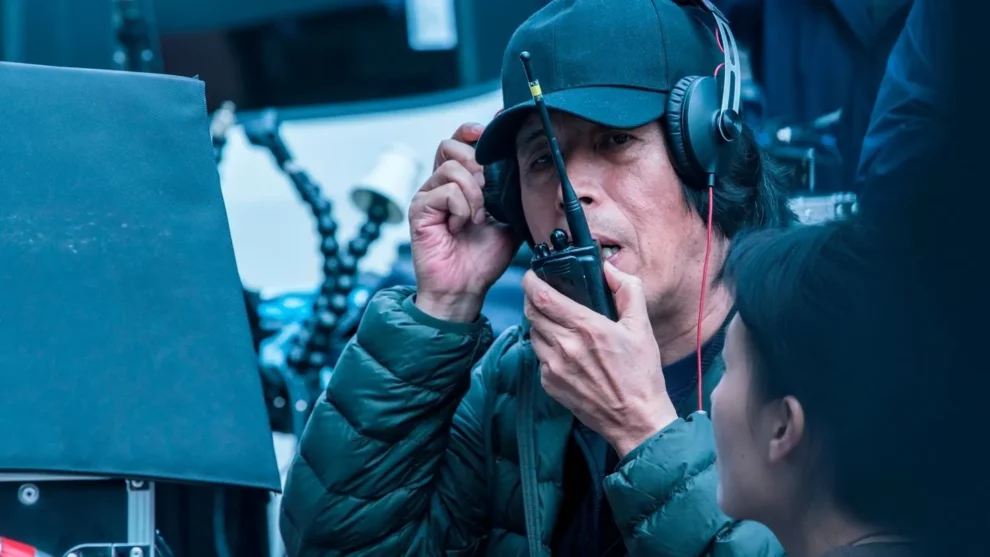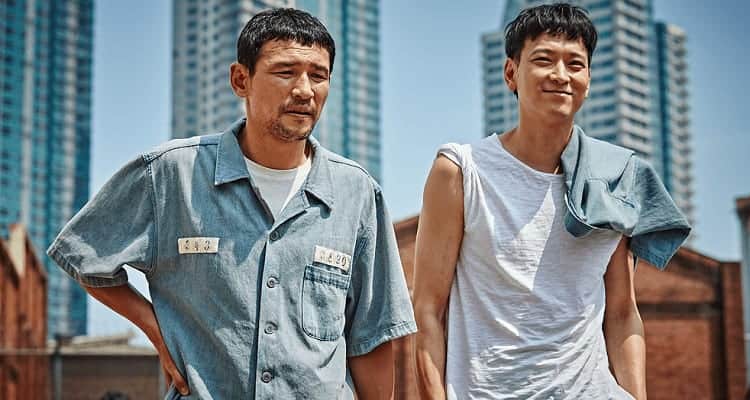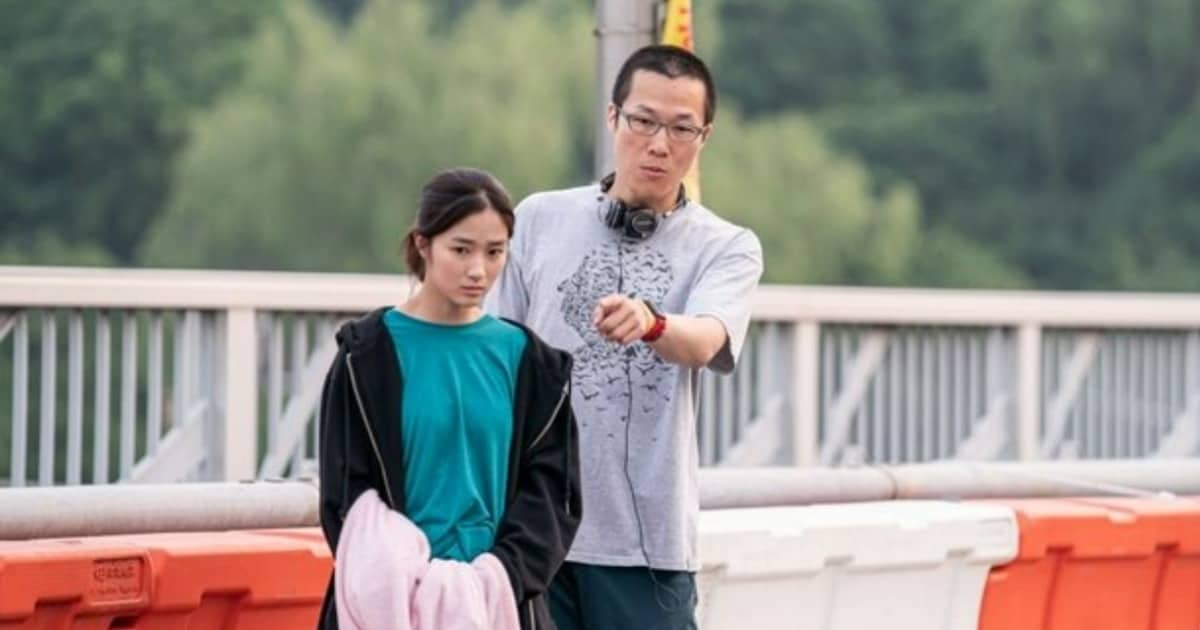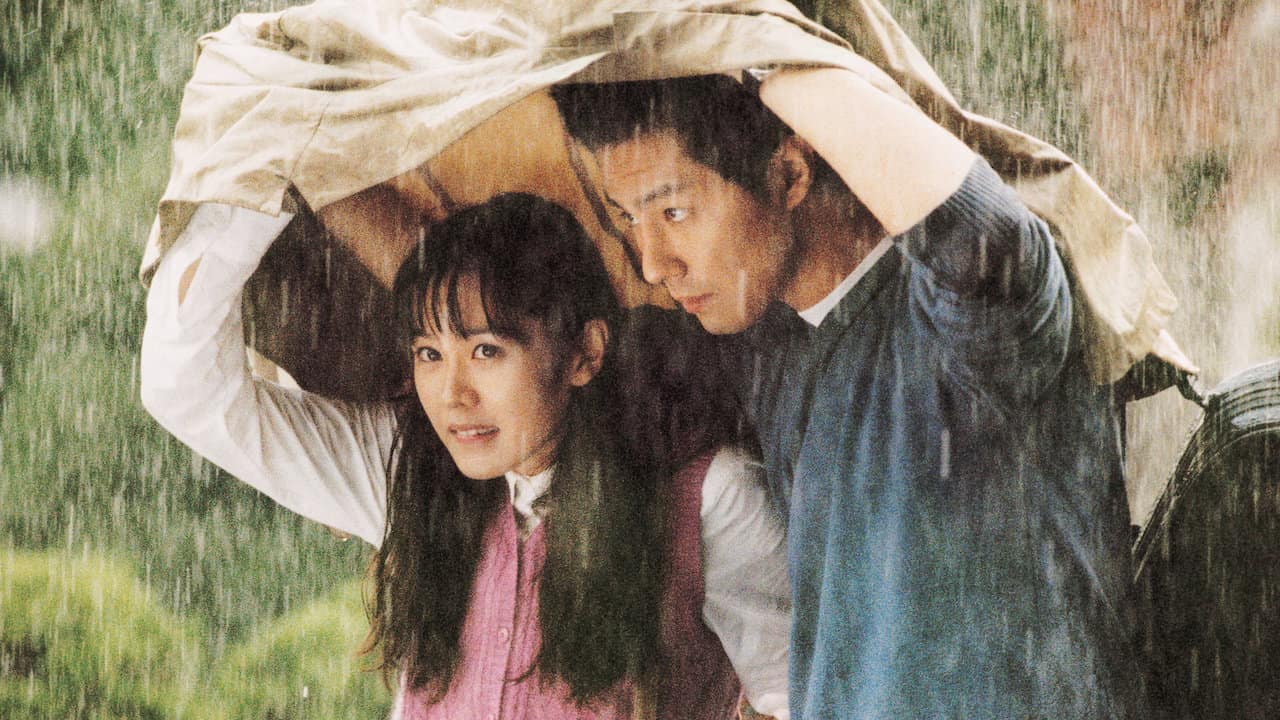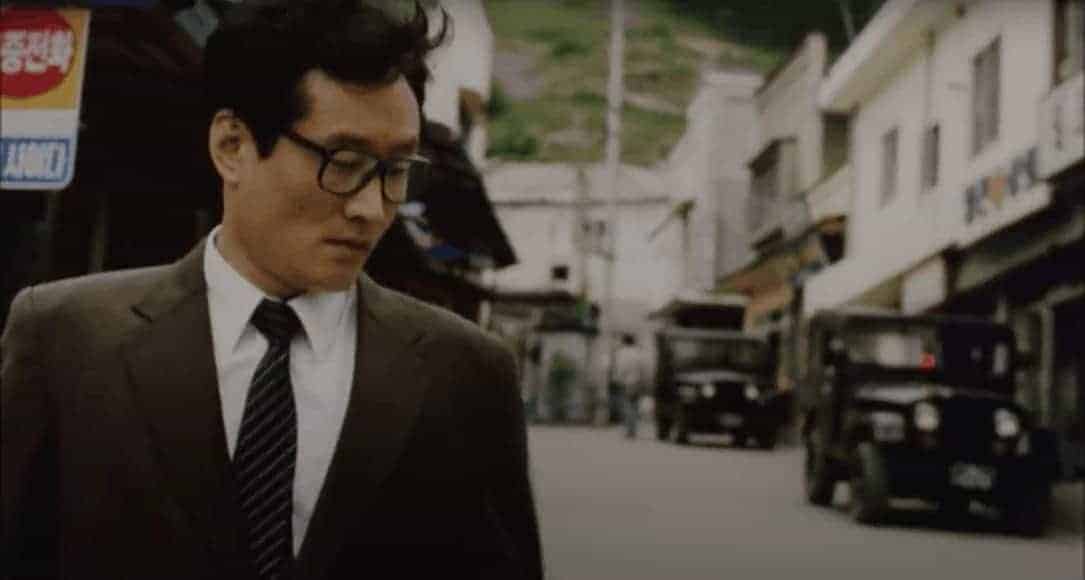His next film, “Oasis”, was a transitional one, since his focus started to change from male characters to female, although in the particular movie, it lies in both. At the same time, his way of shooting also changed. As Lee states: “I used to plan everything out and shoot the scenes accordingly, but with “Oasis”, I tried not to script things. If I saw a pattern, I changed it. If you script things, you can only see the emotions of the main characters. We went through many takes with the supporting actors. And sometimes for the extras also. I think everything in the frame influences the main character's emotions. If their actions contradict this in any way, it can dilute the emotion. That's why I was so picky about these small details. Sol Kyung-gu told me that I could only see the drawbacks” (Source: Kim Young-jin, “Lee Chang-dong“, Seoul, Korean Film Council, 2007).
We will refer about this last aspect later in the text.
Oasis (2002)
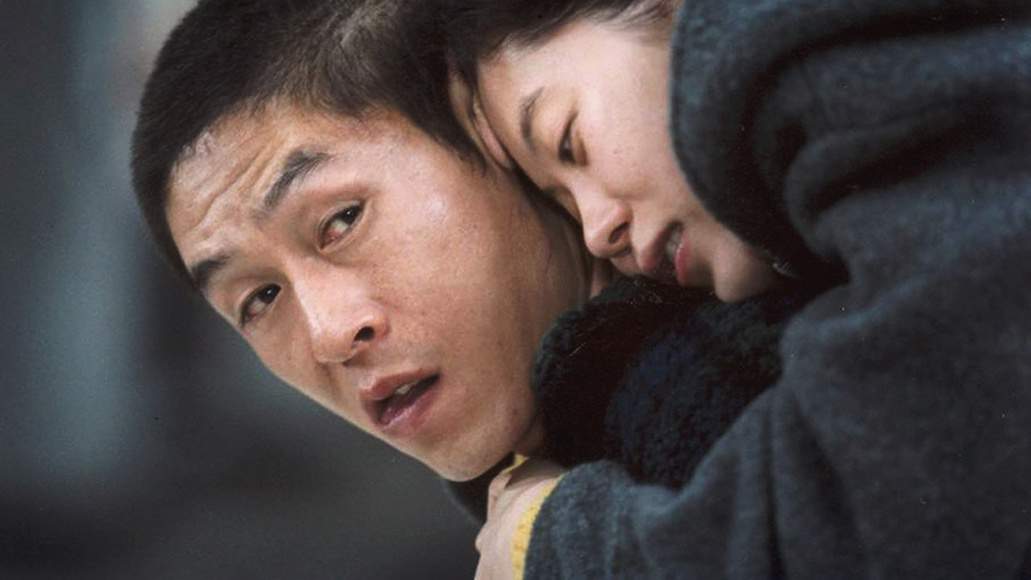
The film sheds a rather realistic light in the lives of disabled people, through an extreme romance. This romance occurs between Jong-doo, a mildly mentally disabled man who has just been released from prison after his third conviction, revolving around a hit and-run that ended up with a man dead, and Gong-joo, the daughter of the victim who suffers from cerebral palsy. Jong-doo, after a reluctant reception from his family, visits the house of the deceased and meets Gong-joo, in a series of events that have him trying to rape her, her managing to avoid it, and him leaving a card with his phone number which eventually the girl calls, after her brother and his wife move out of the apartment they shared. As the two become closer, Jong-doo's already erratic behaviour becomes even more extreme, although the final consequences are not his fault at all.
Lee Chang-dong directs and pens a film that deals with a quite unlikely romance in order to portray in shuttering and occasionally disturbing (and even offensive) realism the circumstances of handicapped individuals. This approach makes it quite difficult to empathize with the characters, something the director seem to wish, presenting both as victims and as burdens to their families.
And if Gong-joo's behaviour is anticipated by society due to her illness, the same does not apply to Jong-doo, who is neither mentally disabled enough to be considered as a person who needs constant care nor intelligent enough to be left unsupervised. His behaviour occasionally seems evil but they are simply amoral and completely irresponsible, as the actions of a child who cannot understand that actions have consequences, with his older brother treating him as such in the most graphic fashion in one of the most memorable scenes in the film. Both of these situations torment their families, something, though, that does not obstruct them from exploiting them, even in the most manipulative way.
Among a number of impressive scenes, the one with the family dinner where Jong-doo presents Gong-joo as his girlfriend stands out, for the number of revelations it provides, as much as the depiction way people react towards handicapped people. The ending of the sequence provides the permanent cut of ties of the former with his family, with the consequences occurring after that implying the disastrous effects actions like that bring.
Add to all that some splashes of surrealism that have Jong-doo acting as a completely healthy person, the melodrama that takes over the last part of the movie and a truly shuttering finale and you have the backbone of a masterful social drama.
Moon So-ri gives an outstanding performance in the film, for which she won the Marcello Mastroianni Award for Emerging Actor or Actress in the 2002 Venice Film festival, among a plethora of awards, once more bestowed in one of Lee's films. However, around this time, the rumors about Lee being exceptionally hard on his actors came to the fore. According to Moon So-ri, who also starred in “Peppermint Candy“. Lee is the kind of director who grabs the actor by the neck and silently says, “Hey, you. Look at this closely. This is you. This is you. Do you want to be a different person? No, this is you. Look at it directly and acknowledge it”. The actor resists at first, but he or she has to do it anyway and eventually comes to accept it. Lee enjoys this painful process. Particularly in “Oasis”, and again according to Moon, they had to shoot the rape scene more than ten times because Lee kept saying it wasn't enough. Even though she felt like fainting, Lee told her to go to the hospital to get a shot and come back for more takes.
Eventually however, and despite this awful experience, his actors want to come back when it ends, and Moon says, “When he told us to start over from the beginning, none of us understood. But we started over anyway and that's the power he has. He questions what he believes and then flips the situation-that's amazing”. Lee does not deny the aforementioned; instead, he admits that he feels great pain on film sets, as if he is entering hell. (Source: Kim Young-jin, “Lee Chang-dong“, Seoul, Korean Film Council, 2007).
Before his next film, Lee Chang-dong became Minister of Culture. Lee supported Roh Moo-hyun's candidacy since 2002, and after he won the elections, Lee served in the office from 2003 to 2004. On the political appointment, Lee said: “At the time of President Roh Moo-hyun's election campaign, one of the things he promised was that his Minister of Culture would be selected from the field of culture and art rather than a professional politician. Well, he got elected, and a lot of people recommended me as this new Minister of Culture. I never thought that this was an outfit that suited me particularly well, but had to accept it as one of those bitter cups one has to accept in the course of life“. (source : http://asiancinefest.blogspot.gr/2008/05/acf-108-lee-chang-dong-e-interview.html)
During his term, Lee proposed a screen quota for independent film but his proposal met with fierce opposition by the Korean movie industry. However, he had some success and in October 2006, he was rewarded for his efforts with the Chevalier (Knight) order of the Legion d'Honneur (Legion of Honor) by the French government for “his contribution to maintaining the screen quota to promote cultural diversity as a cultural minister”. It was delivered to the French embassy in South Korea by the French Minister of Culture, Renaud Donnedieu de Vabres during an official visit.


